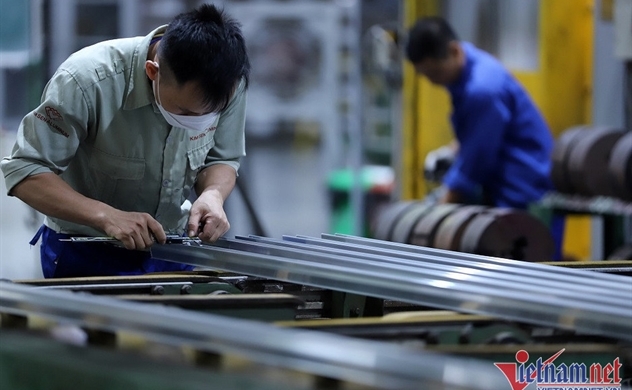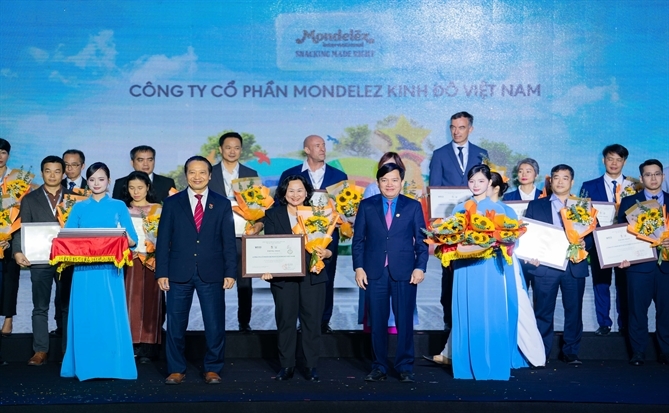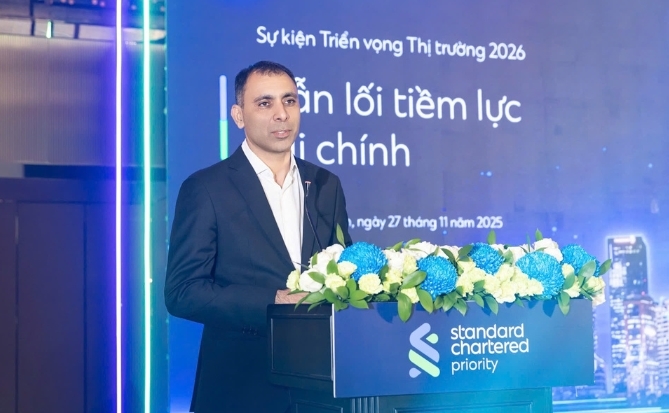Vietnam should apply global minimum tax but in a wise way: economist

The global minimum tax is the second out of the two pillars of the base erosion and profit shifting (BEPS) program initiated by OECD. Photo by Vietnamnet.
The global minimum tax scheme, expected to be applied from 2024, is believed to have a great impact on the investment environment. VietNamNet would like to present the opinion of Dr Le Duy Binh from Economica Vietnam on what Vietnam should do to prepare for the implementation of the commitment.
The global minimum tax is the second out of the two pillars of the base erosion and profit shifting (BEPS) program initiated by OECD. Multinationals with total revenue of 750 million euros ($800 million) or higher in two of the last four years will bear a minimum corporate income tax (CIT) of 15 percent.
Vietnam, together with 135 other countries, is a signatory to the program. It is estimated that 100 conglomerates which create $150 billion worth of taxable revenue globally will be subject to the principle.
In Vietnam, according to the General Department of Taxation (GDT), there are 1,015 foreign invested enterprises (FIEs) belonging to multinationals with global consolidated revenue of over 750 million euros.
Experts believe that Vietnam needs to follow the principle because it should protect the right to tax, and because the global minimum tax can offer an opportunity to increase domestic revenue in the short term.
However, applying the global minimum tax could affect Vietnam’s foreign investment attraction policy, causing it to lose its appeal and competitiveness compared with the countries that are not members of BEPS pillar.
This will affect the national strategy on industry and research and development (R&D) efforts to become a tech center.
In principle, if Vietnam applies the minimum CIT of 15 percent, the multinationals covered by the global minimum tax initiative investing in Vietnam and enjoying tax incentives (below 15 percent) will not view this as a financial loss caused by Vietnam. When it is applied by all OECD and G7 members, multinationals will have to pay a tax of 15 percent in any case.
Regarding FIEs in Vietnam, the difference is that they have two options: either they pay the preferential taxes they are enjoying in Vietnam and the remaining taxes in the countries where their head offices are located, or pay all the 15 percent tax in Vietnam.
However, the problem is that companies may complain about the way Vietnam behaves or supports them in such circumstances.
Though this is an international agreement, the imposition of the minimum tax rate of 15 percent and the removal of preferential taxes previously give to investors may create a negative sentiment among investors.
This may leave an adverse impression about Vietnam’s efforts to respect commitments, generating unfavorable images about the investment environment.
They may contend that Vietnam should not join BEPS to protect foreign investors in Vietnam, especially those that have very large investment projects.
Problems
Another problem is that if applying the minimum tax rate of 15 percent, Vietnam won’t be able to set a specific scheme for the 1,015 FIEs belonging to multinationals that are subject to the global minimum tax.
The minimum tax rate must be applied to all FIEs and domestic enterprises as well, to ensure the principle of no discriminatory treatment stipulated in Vietnamese laws and international commitments.
If Vietnam sets regulations specifically reserved for FIEs belonging to multinationals subject to the global minimum tax, this will create inequity in the legal system.
If so, large FIEs and strategic investors, who expect big incentives, may feel they are being discriminated against compared with other FIEs and domestic enterprises.
Vietnam wants to lure big investors, and take full advantage of the global supply chain.
So, it is difficult for management agencies to make a choice at this time. The way is choosing based on common sense.
The ‘common sense’ in this case is that while implementing international commitments, Vietnam also respects its commitments to investors, i.e. giving them the right to choose the way of paying tax and supporting them in their choice.
They can either pay 15 percent CIT in Vietnam (which includes the preferential CIT rate set by Vietnam and the remaining tax in accordance with the global minimum tax scheme), or pay the preferential tax in Vietnam and the remaining tax in their home countries.
Vietnam can apply the measures to encourage foreign investors to choose to pay tax in Vietnam, including the support in land leasing fee, worker training, electricity prices and construction works with infrastructure.
Source: Vietnamnet

 TIẾNG VIỆT
TIẾNG VIỆT 

_131447820.png)














